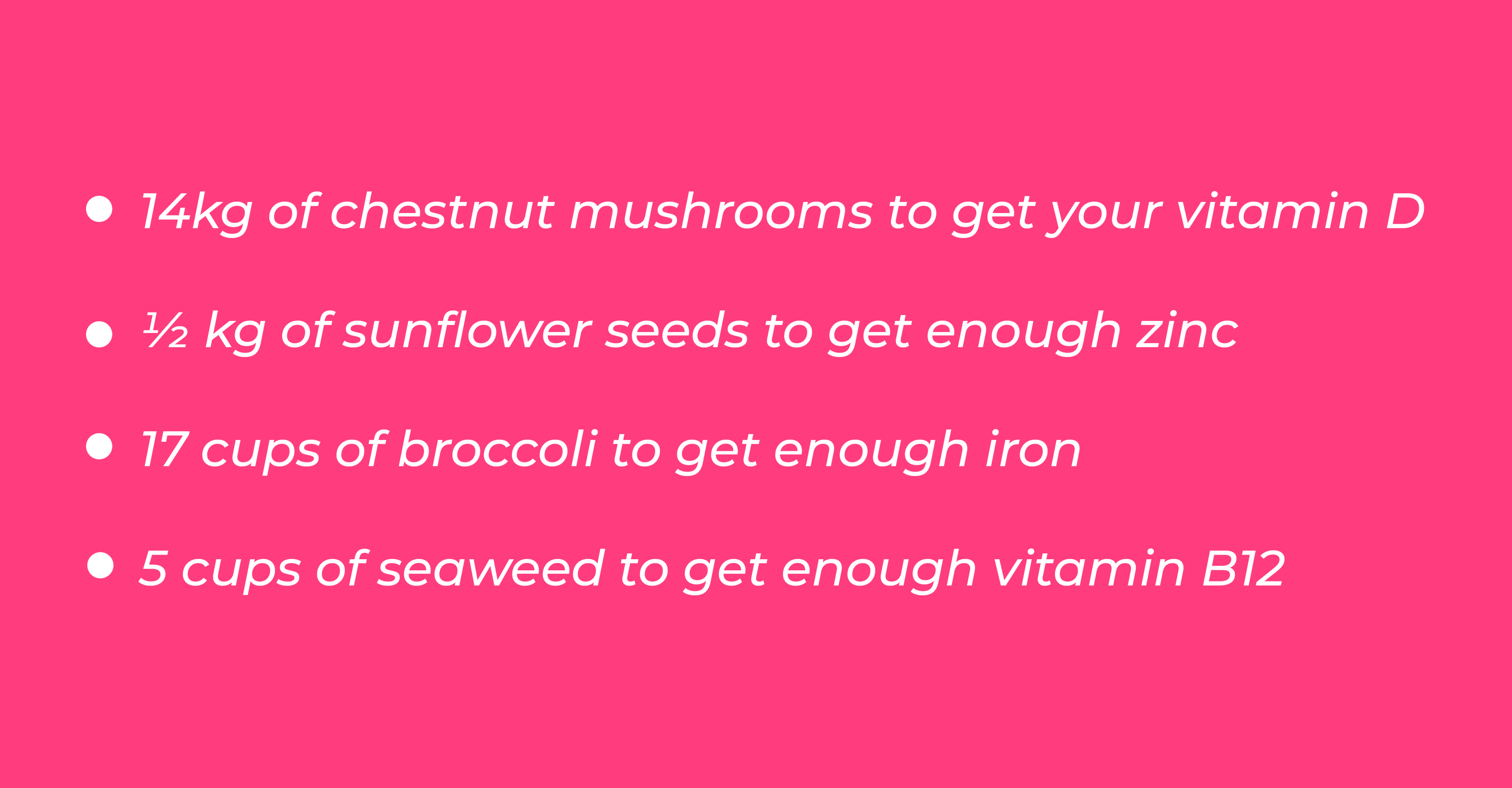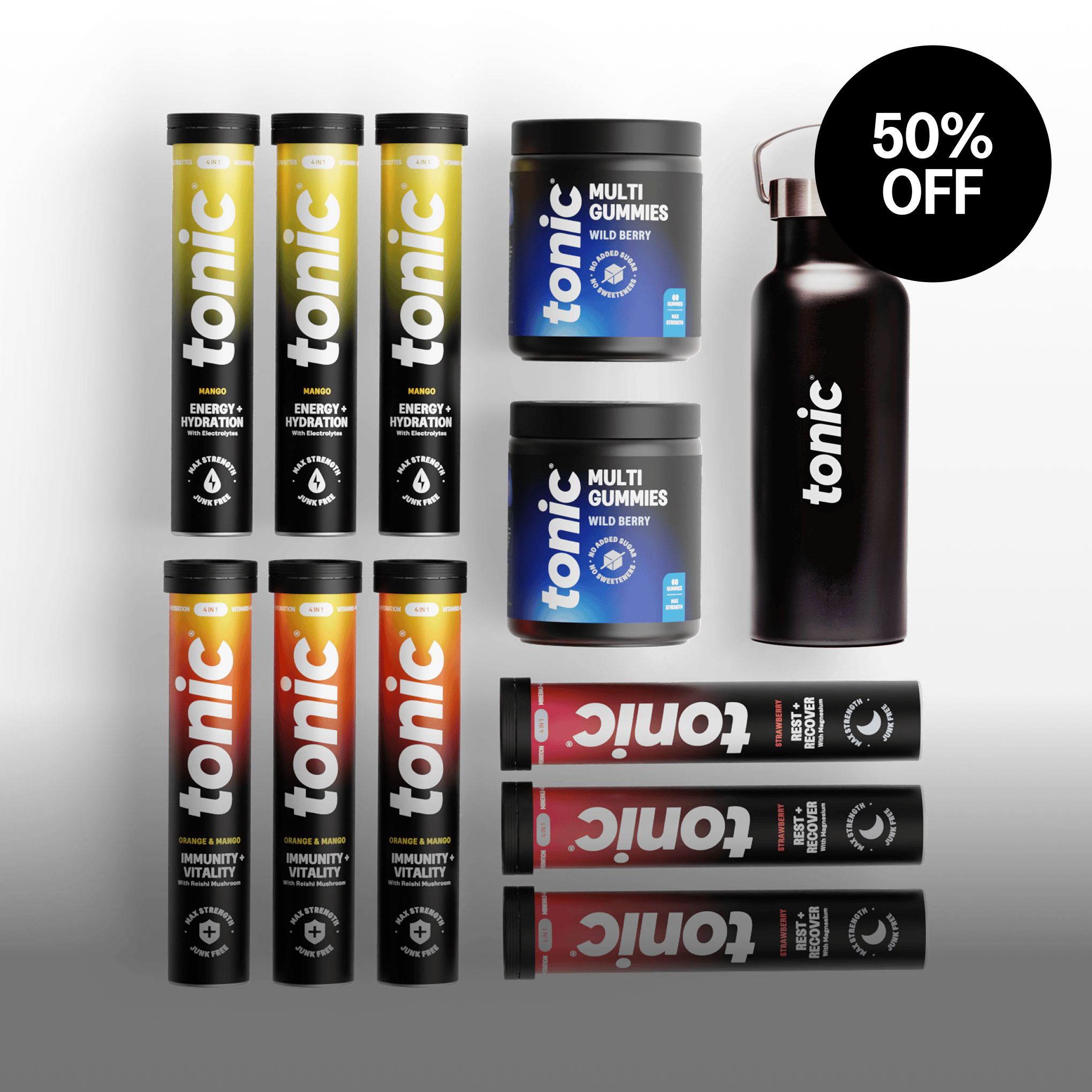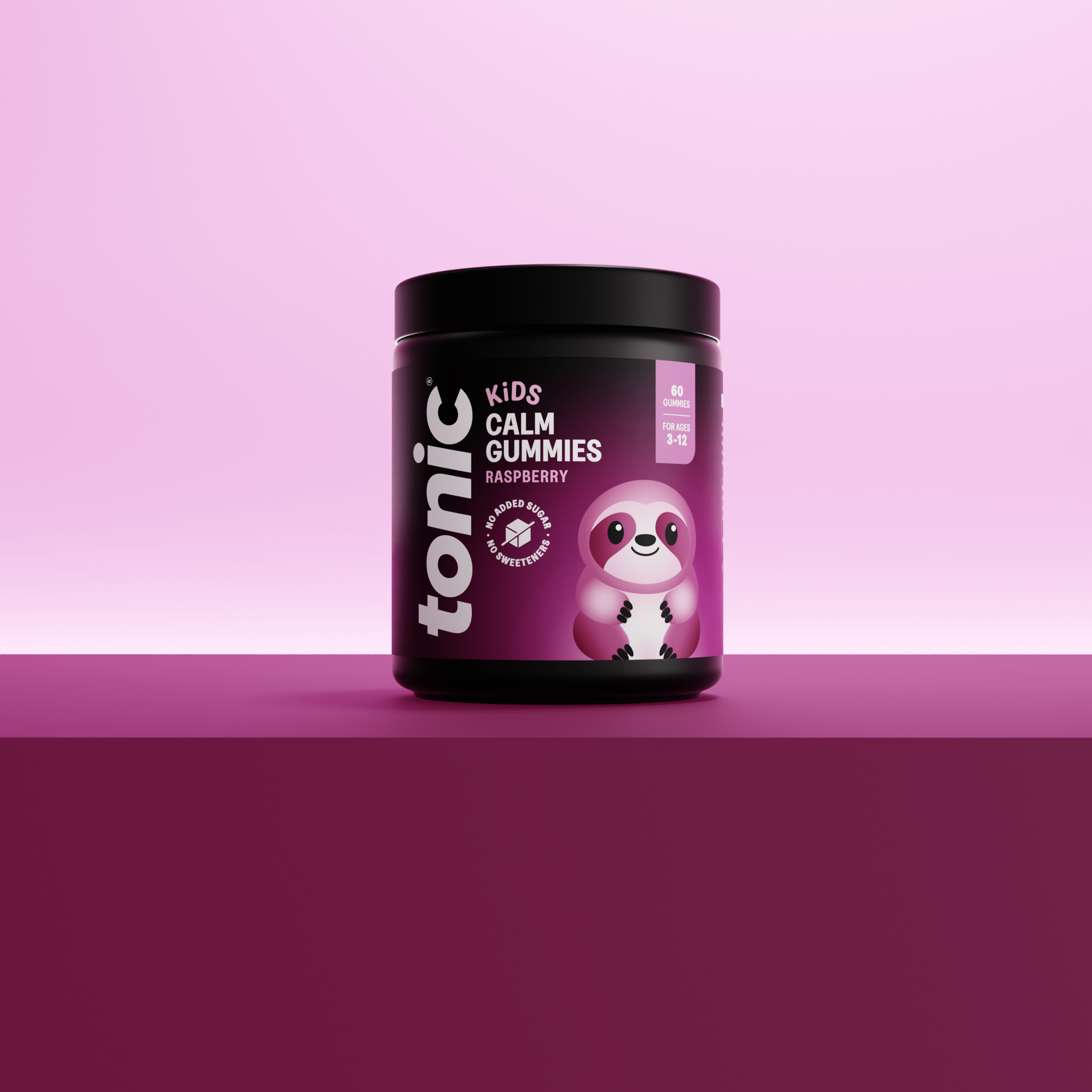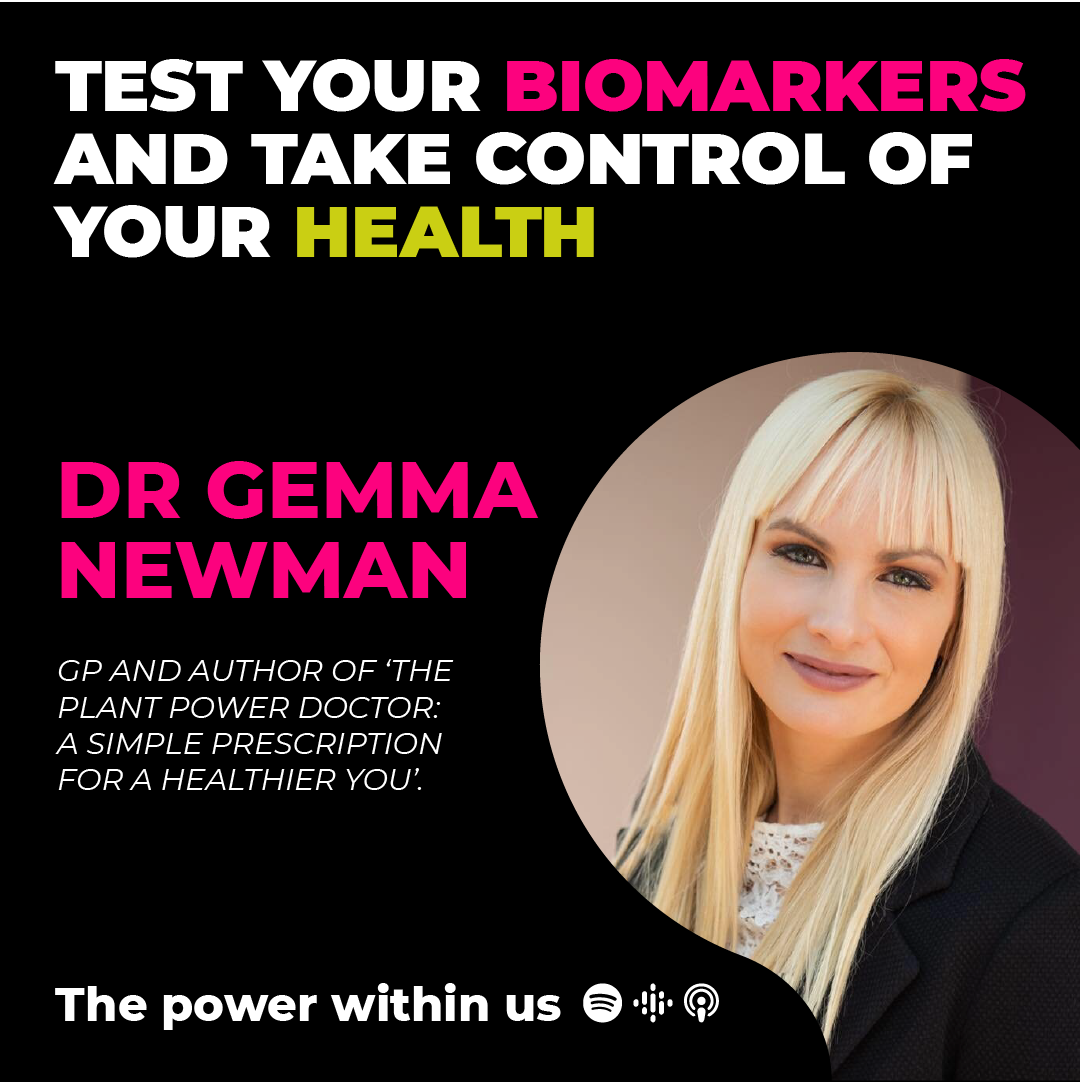At Tonic, we are always challenging the status quo. We don’t do this to be difficult but we only want for people to know the full truth behind what we need to be the healthiest versions of ourselves. And when it comes to getting enough vitamins, there are a whole load of misconceptions that I feel we need to do some myth busting on.
NRVs are a big fat myth
So why is this a myth? Well your RDA of vitamins is defined as the amount of vitamin you need to prevent nutritional deficiencies. This isn’t the same as optimal health, which would ensure your body has an abundant amount of vitamins and minerals to function optimally. Saying all you need is your RDA is the equivalent to saying I only need to eat food once a month. True, eating only once a month would ensure you probably don’t starve, but you would be very thin, weak and certainly not functioning optimally.
The truth is optimal health is a long way from preventing a deficiency and it is a spectrum that is slightly different for everybody. What is clear, is the minimum amount of vitamin we need is our RDA but we should all be looking to increase on that amount for better overall health. Optimally speaking, individual circumstances and environment make a big difference which is why there is little scientific consensus on the optimal level of vitamins and if you want to get serious about vitamins, it is wise to actually take a test to discover the levels in your blood. This will give you a better understanding of what you need to focus on and how much you need to take to get to the levels you seek for optimal health. We cover this in more depth on one of our blogs which you can read here.
Your vitamin needs are always changing
Our vitamin needs fluctuate throughout the year and will vary person to person. If we look at summer versus winter, we get more sunshine in the summer months as the days are longer. Direct sun to skin exposure is crucial for your body to create Vitamin D so in those darker winter months, your vitamin D levels will be directly affected. Not only is winter a dark vitamin D-less time of the year, but it also brings on the dreaded cold and flu season. With more chances of getting sick as viruses can live longer in colder temperatures and people are forced to be in enclosed spaces for longer your immune system will need its fuel to keep fighting strong.
Additionally, there will be times where our diets aren’t as good as they could be, when we don't get enough sleep or are under a lot of stress. That’s just how life goes! When we experience all these things life throws at us, our immune systems are under threat, therefore, the need for more vitamins such as vitamin C, vitamin D and zinc all of a sudden becomes prevalent. Did you know that when your immune system is under threat, your vitamin C requirements increase by 50%? To read more on why our vitamin requirements constantly vary, read our blog post.
Food isn't enough
Whilst you may think that we can get enough from our diet, you may want to think again. Dr Gemma Newman, also known as the plant powered doctor, touches on this in one of our podcast episodes. She says “We can get some [vitamin D] from food. But honestly, most of it is not really from our food. Only a maximum of 10 percent can we get from our food and things like oily fish, sunbathed mushrooms, actually”. (Listen to the full podcast episode with Dr Gemma here). Whilst fish has one of the highest vitamin D content out of all the food groups, you would still have to eat 140g of salmon, 200g of halibut, 850g of cod and 2 cans of tuna to get only 10 ug of vitamin D when we should be aiming for 20 ug of vitamin D a day. Let's be honest, no one is eating that much fish in a week let alone a day!
If you don't eat meat...
The popularity of vegetarian and vegan diets are becoming more prevalent. To date, 14% of the UK follow a plant based diet with 500,000 people giving up meat in 2020. People following a vegan diet have also increased by 40% in 2020 so it is clear there is a shift in our culture where people are eating more plant based diets. Whilst we aren’t saying you should be plant based, because plants are powerful, it's important to be mindful that following this diet puts you at a higher risk of being deficient in vitamin D, vitamin B12, calcium, zinc and iron. There are plant based sources of these nutrients but to reach an optimal daily amount you would have to eat…

This is why we add the highest quality and highest dose of vitamin C, D and zinc in our drinks. To make it easy to get all our vits, minerals and plants in just 1 delicious drink.








Leave a comment
All comments are moderated before being published.
This site is protected by hCaptcha and the hCaptcha Privacy Policy and Terms of Service apply.